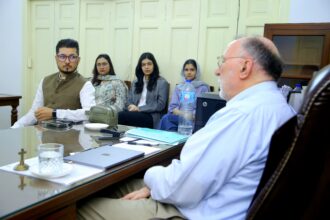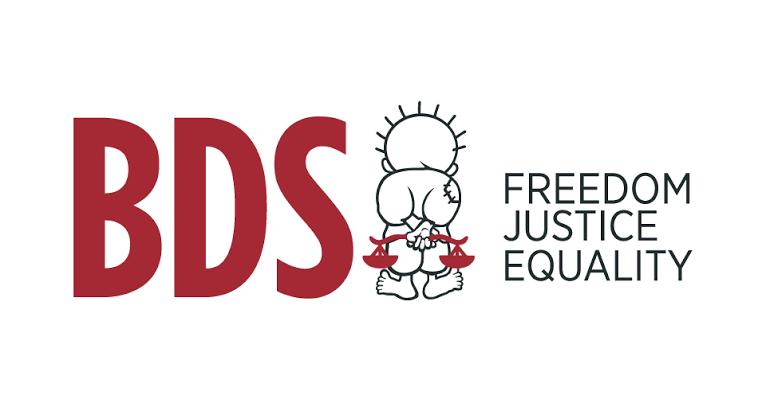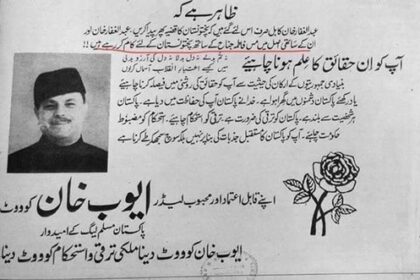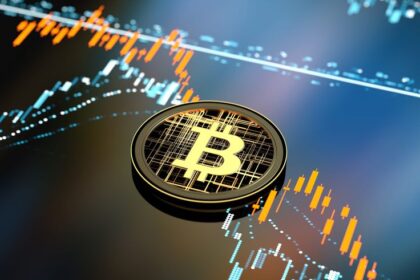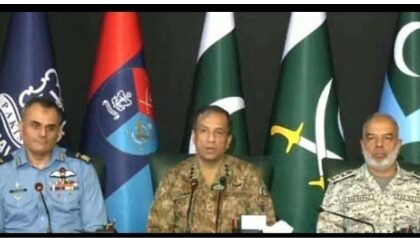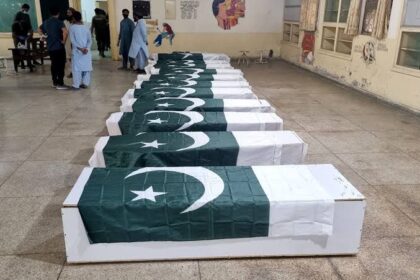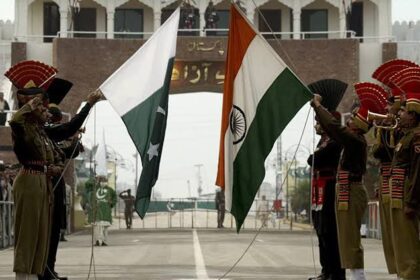Mera azm itna buland hai ke paraaye sholon ka dar nahin,
Mujhe khauf aatish-e-gul se hai, yeh kahin chaman ko jala na de.
(My resolve is so high that I do not fear the flames of others;
What I fear is the fire within the flower, lest it sets the whole garden ablaze.)
Aitzaz Ahsan wrote in the preface of his book The Indus Saga and the Making of Pakistan:
“A nation in denial of its national identity is unfortunate, but when it chooses to adopt an extra-territorial identity, it becomes a prisoner of propaganda, force, and brutality. The state becomes a partner in violence, and it breeds violent extremism. That is the Pakistan of today—not the Pakistan that its founders conceived. Identity is at the heart of the problem.”
Pakistan in 2025 is not the Pakistan that Jinnah envisaged in 1947. I will not, at this time, delve into the debate of whether Jinnah wanted a religious or secular state, but I do know that he envisioned a state where everyone would be equal before the law, regardless of their caste, colour, or religion.
Over the past few weeks, I have come across many disturbing visuals on social media. Some fanatics have been vandalising various food outlets. One video from Sindh showed individuals throwing bottles of Pepsi—and even drinking from them—while claiming that these brands are funding the ongoing genocide. Another video from Saddar, Rawalpindi, left me disheartened as I reflected on how low we have stooped as a nation. In the footage, some men entered a KFC, and one of them, armed with a hockey stick, began shouting and violently striking the counter.
What kind of protest is this? These harrowing incidents expose the mindset of fanatics and their obsession with violence. These individuals are not truly committed to any cause or movement; instead, they merely follow mob mentality, lacking purpose in their own lives. With little to show for their own accomplishments, they seek validation through such egregious acts, knowing that others like them will praise them.
In Sheikhupura, a KFC worker was shot dead in the kitchen. He may have been the sole breadwinner for his family, working tirelessly in this struggling economy and contributing to the local economy.
The fact that KFC isn’t even on the boycott list is something most people are unaware of—and I am certain that many of these zealots don’t even know where the boycott campaign originated.
The BDS movement began in 2005. BDS stands for Boycott, Divestment, and Sanctions. If you visit the BDS movement’s website, you’ll find that they clearly state it is a non-violent movement advocating for the rights of the Palestinian people. However, the actions of these zealots in Pakistan, carried out in the name of boycott, are in stark contradiction to the movement’s fundamental principles.
I suggest anyone seeking to better understand the BDS movement watch the interview with Omar Barghouti, the co-founder of the movement, hosted by Fatima Bhutto and available on the Al Jazeera’s YouTube channel.
The real issue is the mindset—an outcome of years of indoctrination—manifesting today as religious extremism, sectarianism, and deep-rooted polarisation. A few days ago, while discussing the vandalism of food outlets, I was shocked to hear one of my classmates defending these acts. When I asked why anyone would target KFC when it isn’t even on the boycott list, he smiled and said,
“Then go ahead and vandalise McDonald’s and other international food outlets.”
I replied, “Why vandalise when we can simply boycott, as the BDS guidelines suggest?”
He responded that, as part of the Muslim ummah, we have a duty to support our brothers and sisters. I gave him a smirk and chose to remain silent.
This is the mentality I am talking about. I challenge those who advocate vandalism to try this in any other Muslim country and witness the response of the state machinery. These zealots need to understand that destroying food outlets will not harm the Zionist state—but it will most certainly damage our own. We already have little credibility on the international stage, especially in the context of foreign investment and aid.
These very people who complain about the economy and lack of investment fail to realise: who will invest in a country descending into chaos? They must be educated about how the franchise model works and how our local economy is interlinked with these international brands.
As I write this piece, yet another case of mob violence has occurred in Karachi. Over the years, such incidents have increased—and no one seems competent enough to stop this madness. In fact, the state has, at times, worsened the situation for its own short-term gains.
As much of a nationalist as I am, it breaks my heart to see my country plagued by these issues. People have given everything for the sovereignty of this nation. Generations have made sacrifices. And what have we given them in return? Extremism, terrorism, and ethnic violence?
People must wake up before it is too late—before this fire engulfs us all. The state must reassert its writ, encourage healthy discourse on television, and actively work towards the deradicalisation of public mindsets.



